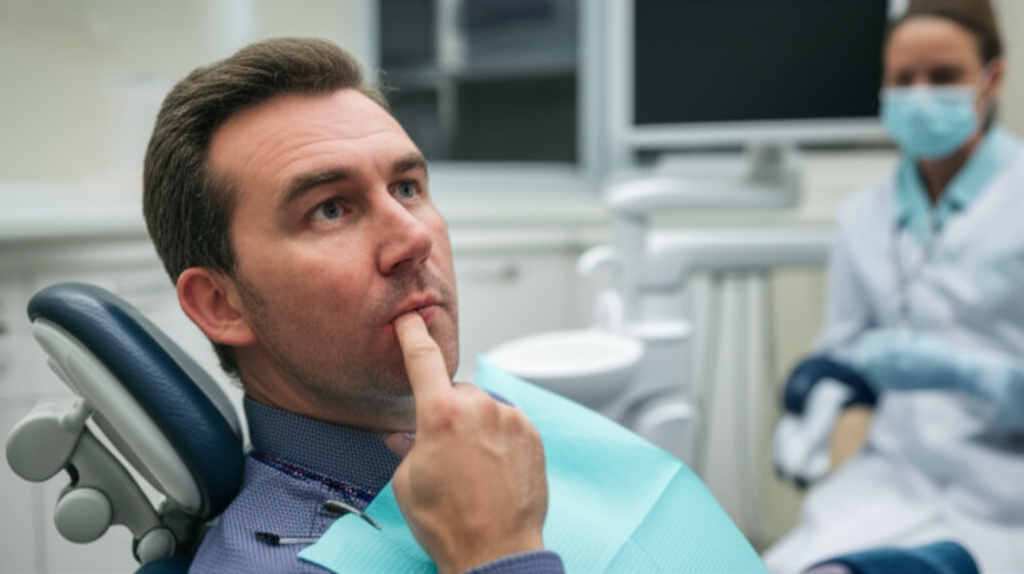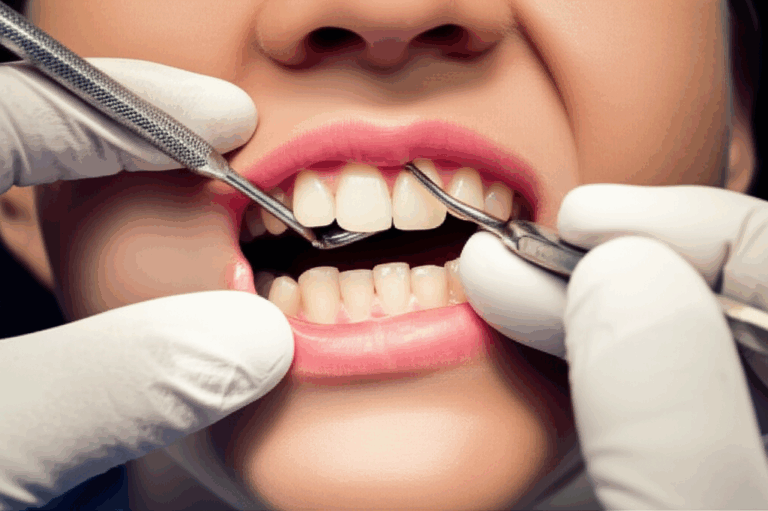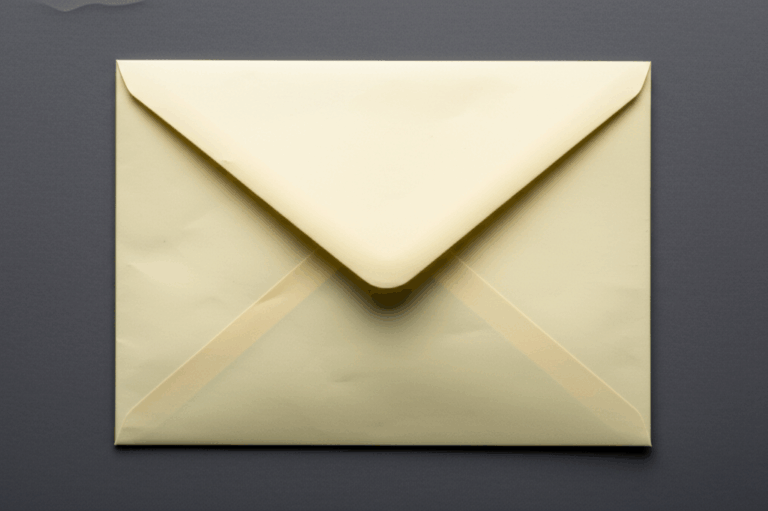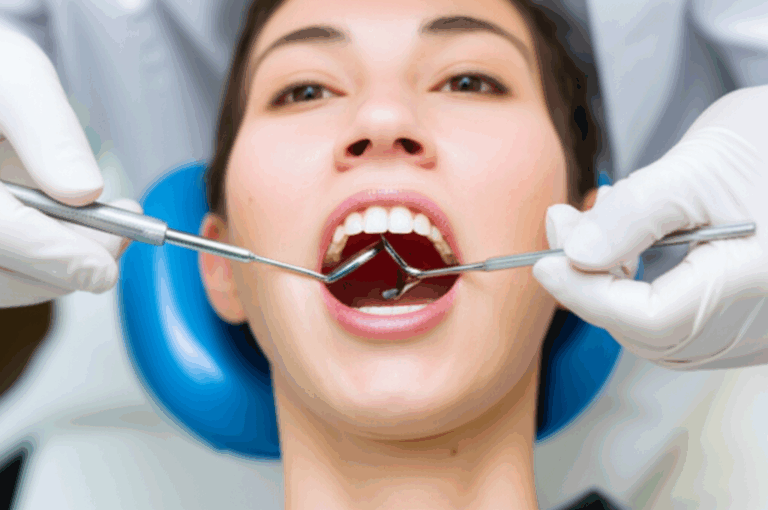
Will a Dentist See Me With a Cold Sore? Your Guide to Dental Visits with Herpes Labialis
That tingling or burning on your lip starts just before your dentist appointment—or maybe the sore appears that same morning. If you’re searching “Will a dentist see me with a cold sore?” or not sure if you should cancel, you’re definitely not the only one. Cold sores are really common, and lots of people go through this. You might feel weird, worried, or even shy about asking. Here’s the truth: dentists see cold sores all the time. But whether they treat you that day depends on a few things.
In this easy-to-read guide, we’ll help you figure out what to do if you have a cold sore and a dental appointment coming up. We’ll explain the facts (in plain language), talk about what dentist offices usually do, share the real risks, and give you quick tricks to help stop future cold sores. You’ll get real answers, clear steps to take, and the confidence to handle things—cold sore or no cold sore.
In This Article
- The Short Answer: When to Reschedule and When It’s Okay
- Why Dentists Are Cautious: Risks and Policies
- What to Do If You Have a Dental Appointment and a Cold Sore
- Preventing Cold Sore Outbreaks Before Dental Visits
- Frequently Asked Questions (FAQs)
- Your Healthy Takeaway
The Short Answer: When to Reschedule and When It’s Okay
Before we get into the details, here’s what you probably want to know first.
Can you see your dentist with a cold sore? It mainly depends on what stage your cold sore is at, and how bad your dental problem is.
Active Cold Sore (Blister, Weeping, Crusting Stages): Reschedule is Best
If you have a red bump, blister, or scab on your lip, this is called the “active” phase, and the herpes simplex virus (HSV-1) is very easy to spread now. Even if it looks a bit better, if you have any blister, sore, or scab, you can still give the virus to others.
Why does this matter for dentists?
- Staff can get sick: It’s easy for the virus to spread during dental work, especially through spit or by touching tools and surfaces.
- Could hurt you more: Working near a cold sore can hurt, slow down healing, or make the sore worse.
- Other patients at risk: Tables, chairs, or tools touched during an active outbreak can spread germs.
Bottom line:
Reschedule your non-urgent dental appointments if you have an active cold sore, until it’s totally healed. Most clinics want this for cleanings and other work that isn’t an emergency. Healing usually takes 7 to 10 days, sometimes more, but it’s safe once no scab or sore is left and your skin has healed up.
Dormant or Healed Cold Sore: Usually Fine to Go
If you’ve had cold sores before, but don’t have one right now, good news! Once your cold sore is gone (no blister or scab left), you’re not likely to spread it during a dental visit. It’s still smart to tell your dentist about your history so they can help you avoid getting cold sores in the future.
Why Dentists Are Cautious: Risks and Policies
If cold sores are everywhere, why do dentists worry so much at work? Good question. Let’s look at why dentists are extra careful.
Risk of Spreading Germs
Dental offices are busy places, with lots of people and tools. Here’s why having an active cold sore is a problem:
- Lots of germs: HSV-1 spreads the most in the active phase—so there are a lot of germs near your mouth and lips, and even skin close by. These can get on tools, gloves, or in tiny drops from your spit.
- Can infect eyes and skin: It’s not just your mouth at risk. If the virus gets on your fingers or in your eyes, you could get a painful infection there.
- Staff and stuff can carry it: Even with good cleaning—gloves, masks, and wipes—it’s just safer for everyone to avoid working around an active sore.
Groups like the American Dental Association (ADA) and CDC give strict rules about keeping things clean. Most dentist offices follow these carefully, so they’ll ask you to wait unless you really need care quickly.
Patient Comfort and Slower Healing
Dental work often pulls on your lips, uses suckers, and might press right where your cold sore sits.
- It will really hurt: Dentist visits can already be uncomfortable. With an active cold sore, it can hurt even more.
- Takes longer to heal: It’s like picking at a scab again and again. More irritation means healing will be slower.
- Can get infected: An open cold sore is like a cut. Dental work could bring in new germs.
Dentists want you to get the help you need—just at the best time for you.
What to Do If You Have a Dental Appointment and a Cold Sore
Stuff happens. Sometimes, you wake up to a cold sore before your dental visit. What should you do?
Before Your Appointment: Tell the Office Right Away
Don’t wait until you walk in the office to mention your cold sore. As soon as you notice it, call your dentist.
What’s helpful to say?
- Be honest: “I just got a cold sore on my lip and have an appointment soon.”
- Tell them what stage it is: (Just tingling, swollen, blister, or scabbing).
- Ask what they want you to do: Most staff will have clear rules.
If you’re at the very first stage (just tingling, no blister), your dentist might help move your visit up, give medicine, or share tips. If it’s an active sore, they’ll almost always ask you to reschedule.
Needing Emergency Dental Care with a Cold Sore
Sometimes you can’t wait—like if a tooth breaks, you have bad pain, or signs of serious infection (swelling, fever, big bleeding).
If this happens:
- Tell the dentist’s office it’s an emergency.
- Tell them about the cold sore, too. They might still see you, but will take extra care to protect everyone.
- What will they do: Staff may wear more gear, use more barriers, or only do what’s needed right away (like relieving pain until your sore is gone, and then finishing the dental work later).
A dental emergency means weighing the risks and benefits. Your dentist will help you do what’s safest.
Preventing Cold Sore Outbreaks Before Dental Visits
If you keep getting cold sores—especially after dentist visits—you might worry the next appointment could trigger one. Here’s how to lower your chances:
Smart Steps for People Who Get Cold Sores Often
Antiviral medicine:
These are prescription pills (like Acyclovir or Valacyclovir) or creams you take a day or two before your visit. They help stop the virus from coming out and make it much less likely you’ll get a sore from dental work.
Creams and patches:
At the first tingle, use a store-bought antiviral cream or patch. These can help make the outbreak shorter or stop it completely if you’re lucky.
Avoid your own triggers:
Common triggers, besides dental work, include:
- Stress (try fun hobbies, deep breathing)
- Sunlight (use a lip balm with sunscreen)
- Being tired, sick, or getting an injury (sleep and eat well; don’t irritate your lips)
Plan ahead:
If dental work has given you cold sores before, tell your dentist before your appointment. They can give you medicine or plan treatment more carefully.
Why Dental Work Can Cause Cold Sores
You might wonder, “Why does going to the dentist sometimes give me a cold sore?”
Dental work can:
- Stretch or dry your lips
- Use shots in your gums or lips (for numbing)
- Cause tiny injuries you might not feel
For some people, these triggers wake up the herpes virus. That’s why using medicine or barrier products can help.
For big dental work—like getting a crown or working with a veneers lab—talk about your cold sore history with your dentist. They’ll help you time things and pick the safest ways to lower your risk.
Frequently Asked Questions (FAQs)
Can getting my teeth cleaned start a cold sore?
For some people, yes. Dental work that pulls your lips, makes tiny injuries, or even makes you stressed can trigger a cold sore if you’re prone to them. Taking antiviral medicine before your visit can help if this has happened to you before.
How long should I wait to see the dentist after a cold sore heals?
Wait until the sore is totally healed: the scab should be gone and fresh skin should cover the spot. This usually takes about a week to ten days after you first get the blister. Once it’s healed, you aren’t spreading the virus, and dental work is much safer and more comfortable.
Will my dentist think badly of me if I have a cold sore?
Not at all. Dentists see all kinds of mouth problems—cold sores included—every day. You don’t need to feel bad. What they really want is for you to let them know about it, so everyone can stay safe.
What if I didn’t know I had a cold sore until I arrived?
If you notice a cold sore before or even during your dentist visit, tell the team right away. They might ask you to come back another day if it’s not an emergency. If it’s urgent, they can still treat you, but will use extra safety steps.
Is it safe for the dentist to work near the cold sore?
Dentists usually avoid working directly on or close to an active cold sore for your safety and comfort. But if the work is needed elsewhere in your mouth, your dentist can use special protection and barriers to lower any risk.
Your Healthy Takeaway
By now, you should know how dental visits and cold sores work together (or rather, don’t work together—unless it’s an emergency). Here’s the easy version:
- Cold sores are normal. Almost 70% of people under 50 get HSV-1, so you’re not alone.
- If you have an active sore, reschedule if you can. It’s not worth the pain or the chance of spreading germs for routine visits.
- Always tell your dentist up front. It helps them keep everyone safe and plan the best time for you.
- Emergencies can’t always wait. In true emergencies, your dentist will still help you, just with more protection.
- You can help stop future outbreaks. If dental work brings on cold sores, ask about antiviral meds, creams, and other tricks for next time.
Action Steps:
If you have a dentist visit and a cold sore:
Your smile matters. And your dental team is there to help you, not just fix teeth. Remember these tips, and you’ll always know what to do.
Further Learning & Related Topics
If you want to know about dental restorations that need careful planning around mouth conditions, check out how specialized places like a dental ceramics lab and a crown and bridge lab work with your dentist for best results.
For people with retainers, see how a dental lab for retainers helps your dentist make sure things fit well and stay clean. Every mouth is different and deserves the right care.
Sources & Trust
- American Dental Association (ADA): Infection Control Guidelines
- World Health Organization: Herpes Simplex Virus Fact Sheet
- Journal of Oral and Maxillofacial Surgery: Research on dental work and cold sores
- Journal of Clinical Dentistry: When cold sores can spread and how to stay safe
Ask your dentist for advice just for you. They know your teeth and can give the best tips.
Smile with confidence—even if a cold sore shows up sometimes. When unsure, ask questions, talk with your dentist, and take care of yourself. You and your dental team are in this together!








